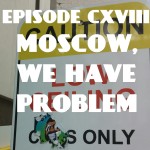 Ahmad Alyaseer is a Jordanian filmmaker with a new short film, “Our Males and Females,” which will have two screenings at this year’s Florida Film Festival. This very well made and thought-provoking short film centers on a religiously conservative couple tasked with having their deceased transgender daughter washed and prepared for burial according to local and religious customs and deals directly with identity acceptance in both life and death in a very interesting way. Here is an interview with Ahmad in which I ask him about the genesis of this film, the Jordanian film industry, and his future projects.
Ahmad Alyaseer is a Jordanian filmmaker with a new short film, “Our Males and Females,” which will have two screenings at this year’s Florida Film Festival. This very well made and thought-provoking short film centers on a religiously conservative couple tasked with having their deceased transgender daughter washed and prepared for burial according to local and religious customs and deals directly with identity acceptance in both life and death in a very interesting way. Here is an interview with Ahmad in which I ask him about the genesis of this film, the Jordanian film industry, and his future projects.
Chris Crespo: With trans rights being a major issue at the moment, what kind of pushback did you receive, if any, while putting together this story of a conservative couple preparing their transgender daughter for burial?
Ahmad Alyaseer: We definitely received many push backs when we were trying to get funds, grants and investors on board, many of them were really interested in the script and loved it but couldn’t attach their name to it because the topic was very controversial. This took us months to try and raise money for the film but with no luck; at the end, I ended up fully self-funding it from my own savings.
CC: Why did you come up with the idea of examining trans acceptance through the lens of a burial ritual?
AA: I have been always fascinated with the concept of burial rituals. My sister and I have two feature scripts that tackle the same topic, one of them is actually where our short film “Our Males and Females” is based on, the other tackles the materialistic side against the spiritual side of burial rituals. Maybe deep down this topic specifically is relatable to us because we witnessed more than twenty deaths in our family.
However, what inspired us to write the film is Bousi, a transgender woman from the Arab region. Her story stood out to us and was extremely touching. Bousi spent her entire life seeking approval and acceptance from her family, friends and wider community. Even though she received legal approval to transition, she was never able to obtain official gender recognition, which increased her vulnerability to systemic discrimination. We wondered what would happen to a transgender person upon their death? Would the discrimination and nonacceptance still prevail?
CC: What challenges do you find in making movies in Jordan? Is there a lot of local infrastructure in terms of artists and craftspeople, or do you find yourself having to rely on international crews to make your films?
AA: I believe we have one of the most advanced crews in the region, most of us worked on big Hollywood productions when they filmed in Jordan, such as: Dune, Star Wars, The Martian and many others. However, we produce a very small number of films yearly, we barely exceed three local feature films a year and some years nothing. Despite producing this low number of films, the films we [do] produce go big, the likes of: Farha and Theeb.
CC: Do you have anything lined up as your next project, or are you busy at the moment promoting “Our Males and Females?”
AA: My sister and I are currently working on three projects, a feature film based on the short film with the same title, “Our Males and Females,” which is in early development, another feature “To Him We Return,” which received development support and has been selected at several labs and workshops. And a TV show.
Chris Crespo is a movie critic, writer and podcaster based out of Orlando, Florida. He hosts the weekly podcast Cinema Crespodiso, and has also made appearances on Doug Loves Movies, A Mediocre Time with Tom and Dan, The Curtis Earth Show, and more. This is his 13th year covering the Florida Film Festival.
This interview was conducted via email.

 Spoiler Bonus Episode – The Fate of The Furious
Spoiler Bonus Episode – The Fate of The Furious #613 – The Last Brutalists
#613 – The Last Brutalists #222 – Acquiescence Shall Prevail
#222 – Acquiescence Shall Prevail #118 – Moscow, We Have Problem
#118 – Moscow, We Have Problem
Leave a Reply
You must be logged in to post a comment.